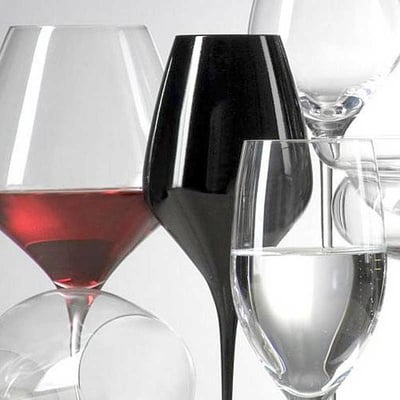Client: " Nope! I don't like it! What is this wine? "
Sommelier: " It's from our local winery! "
Client: " They're not ready, are they? "
It's not so much that YOUR wines are not ready, but rather your understanding of your visitors' perspectives.
As an experienced sommelier who served thousands of customers, I have good reason to believe you're not presenting your wine to your advantage. And that has a direct impact on your CHURN or returning customers if you prefer.
Let's face it, sommelier, or the art of choosing and serving wine appropriately, is a much different ball game than producing it. If you still decide to "play" the sommelier's role for your visitors or any other tasting opportunities, here is some essential knowledge you need to know and master.
Don't miss #5. It is by far the most important factor.
Factor #1
Be mindful of the temperature
You've probably improved on this one but I still see wineries pouring their wine in small plastic containers at room temperature. 40 years in the field and I have NEVER served wine at room temperature! Not even when camping! Indeed, a few degrees too warm and you get some more predominant flavours bullying the more subtle ones that gave a wine most of its specificity and subtility. Too cold, and you miss out on some of the other flavours still hibernating. With little attention, you will notice the flavours change as the temperature of the wine increases. At room temperature, it might not be the flavour most people will find appealing.
Tip: Wine is inclusive; help them perceive basic characteristics like intensity. "Is it mild to you or strong?" Trying to impress them with a suggestion of a "freshly cut garden hose" scent will only alienate them.
Factor #2
Carafe your wine
Let's face it, you've probably tested your wine a thousand times. If your wine was a bit too acidic for a majority of people, you probably wouldn't know it.
The success of my workshops is mostly due to carafing ALL wines. .jpg?width=390&name=pret%20a%20boire%20(1).jpg)
Most "quality" wines, whatever their origin, are greatly enhanced when they are carafed from 2 to 8 hours.
Wine is not a "ready to drink" (PRÊT-À-BOIRE) beverage. Notice in the picture that there is no wine present?
If all alcoholic beverages sold were "ready to drink", a "ready to drink" section would have never been created. If you're looking for something to drink within the next hour, then skip the wine and go straight to the "ready to drink" section.
To prove my point, the first test I suggest to my participants is to buy 2 identical local wines; one they carafe and the other they serve without carafing.
Result: "Like night and day!"
My participants quickly realize that carafing a wine, brings forth the tastes left behind the unsoftened acidity, bitterness and tannins.
TIP: Do the test yourself. Serve the same wine from 2 different bottles, one carafed and the other brut and let your visitors decide. You might be surprised by the results.
Factor #3
Serve some food
Offer to taste your wine with an accompaniment, like a canapé or a piece of charcuterie.
One of the first exercises we do in my wine tastings is to compare the wine "with" and "without" food. Very quickly, the comments flock; all realize how different the wine tastes with food.
This is normal, as the vast majority of wines find their balance with food. It is for this reason that they are often a little more acidic, bitter, or tannic, in order to prepare the taste buds for the flavours and textures of the food. This way, the wine finds its essential element, its right balance to offer the flavours for which it was created.
Most of your visitors may not have the reflex to adequately appreciate the acidity, bitterness, and dryness of the mouth from the tannin of your wine as a connoisseur would. He knows that with an appropriate meal, the discomfort dissipates and becomes the ally of the food/wine pairing. That the presence of these elements remains essential to enhance any dish and thus achieve perfect harmony.
Sadly, most people simply expect that your wine will match the flavours they are used to.
TIP: Ask your visitors if they can recognise the basic taste elements and explain how essential they are. They will thank you for it.
Factor #4
Do not judge a wine from the first sip.
 My workshops are a real thrill for those who want to have fun and a great laboratory to better understand wine consumers. One of my favourite experiments is when I talk about how unctuous and flavourful a wine is and then serve them water from a Blind Tasting Wine Glass instead.
My workshops are a real thrill for those who want to have fun and a great laboratory to better understand wine consumers. One of my favourite experiments is when I talk about how unctuous and flavourful a wine is and then serve them water from a Blind Tasting Wine Glass instead.
Me --> 😃
Them --> 🤮😠
The same water they just drank to neutralise their mouth before tasting the exquisite wine before them, has now become "disgusting".
Anticipation will play against you if you're not aware. Instead, prepare them for what's to come.
The first sip of a wine is often undrinkable and will mostly satisfy the primary taste buds like acidity, bitterness and sugar. It is only once satisfied that you open other papillae or taste buds, able to appreciate the most interesting flavours. In short, the complexity of a wine, its "raison d'être", can only be found in the second or third sip. After more than 40 years of wine tasting, it is physically impossible for me to judge a wine from the first sip. I must drench my basic taste buds first if I want to give your wine all the merit it deserves.
Make sure your visitors prepare their palate as well as their perceptions before the tasting. Warn them about the acidity or bitterness that might be overwhelming at first. Explain its importance while they get used to it with a second and third sip.
Tip: Never talk about your wine before they taste it. Simply ask where their palate is while exploring the taste your wine has to offer.
Factor #5
Never assume your visitor likes your wine
If I was paid 1 dollar for each time someone told me they haven't like your wine at their visit to your winery, I would be very rich. Yet, they haven't said a thing to you and even bought a couple of bottles to encourage your endeavour; a couple of your wines that they'll give as gifts or empty into the toilet.
This is the cruel reality of most wine consumers that are used to technological wines.
 It's imperative to know where their palate is at. Before I suggest any wine I always ask what wine they are used to.
It's imperative to know where their palate is at. Before I suggest any wine I always ask what wine they are used to.
For example, let's take a teenager who only feeds on McDo and Burger King. Do you think that he will appreciate a beautifully made salad freshly picked from his grandmother's garden thus made with the best ingredients? I don't think so either. The explanation is very simple: its palate is not ready for the flavours of local products. Same for the majority of wine consumers who drink mostly "technological" wines, much more profitable than "Vin de Terroir". As you know, these products are often handled and mixed with a wide variety of other products, mostly chemicals. An unfortunate process that aims to match the flavours and characteristics of wine to the palate of consumers. The good news is that your local wine is the opposite of technological wine. It focuses on the original olfactory and gustatory complexity of the raw grapes and the terroir. As 90% of the wines sold in SAQ, LCBO and many other unscrupulous wine stores, are "manufactured" wines, consumers can't be blamed for getting used to it.
It is perhaps your visitor's first time to appreciate a local wine, a TRUE wine made in a natural way, a certain education of the palate might be necessary.
When presented with a glass of quality wine, I have taught my participants/clients to replace "This wine is no good!" with "I haven't acquired yet the taste your wine has to offer". You might try to do the same.
Tip: Always ask your visitor what type of flavour they are used to. So that they feel more comfortable sharing with you what they truly feel about your wine. People want to engage with meaningful exchanges, not sold to.
Conclusion
My quest is that you will reconsider your perspective about wine consumers in general. I have spent a minimum of 3 hours with over 11,000 participants asking tonnes of questions and doing many tests with them. I therefore know how little they are understood by your winery.
The opposite is also true! I have spent days, weeks and months with winegrowers like you from all over the world who also felt misunderstood by consumers. Artisans of the most original wine that only THEY were able to express from the terroir they have felt in love with. A gustative masterpiece that very few had the opportunity to appreciate for its true value.
I'm attentive to your stories, know the right questions and have widened my taste buds to an unbelievable level of appreciation. Wines that most will find undrinkable but a few, like me, who has acquired taste and knowledge to understand the characters of your terroir that inspired you. "Un vin plaisir" as we say. A wine crafted with passion to mark a moment that forever will stay associated with a scent and a taste.
For most wine consumers this level is a dream to aspire to, not a reality. Therefore we both have a lot of work to educate them, help them achieve that dream.
There's still much more to do to fill the huge gap growing between you and your consumers. That's why wine sales decline every year. I hope those tips will help you get in the right direction.
Here's the copy of this same article but written for the wine consumers. Many winegrowers have printed it and offered it to their guests/visitors as a quick reminder or for preparation sake to make the most of their visit.
If you have questions or want to talk more about your DtC strategy, click here or below to book a Zoom meeting with us. We'll be a delight to hear from you.
Contact us today for a personalised DtC solution for your winery.

Many thanks for reading.
You know someone who could benefit from this post?
Click on the Social Media icon below. They will thank you for it.